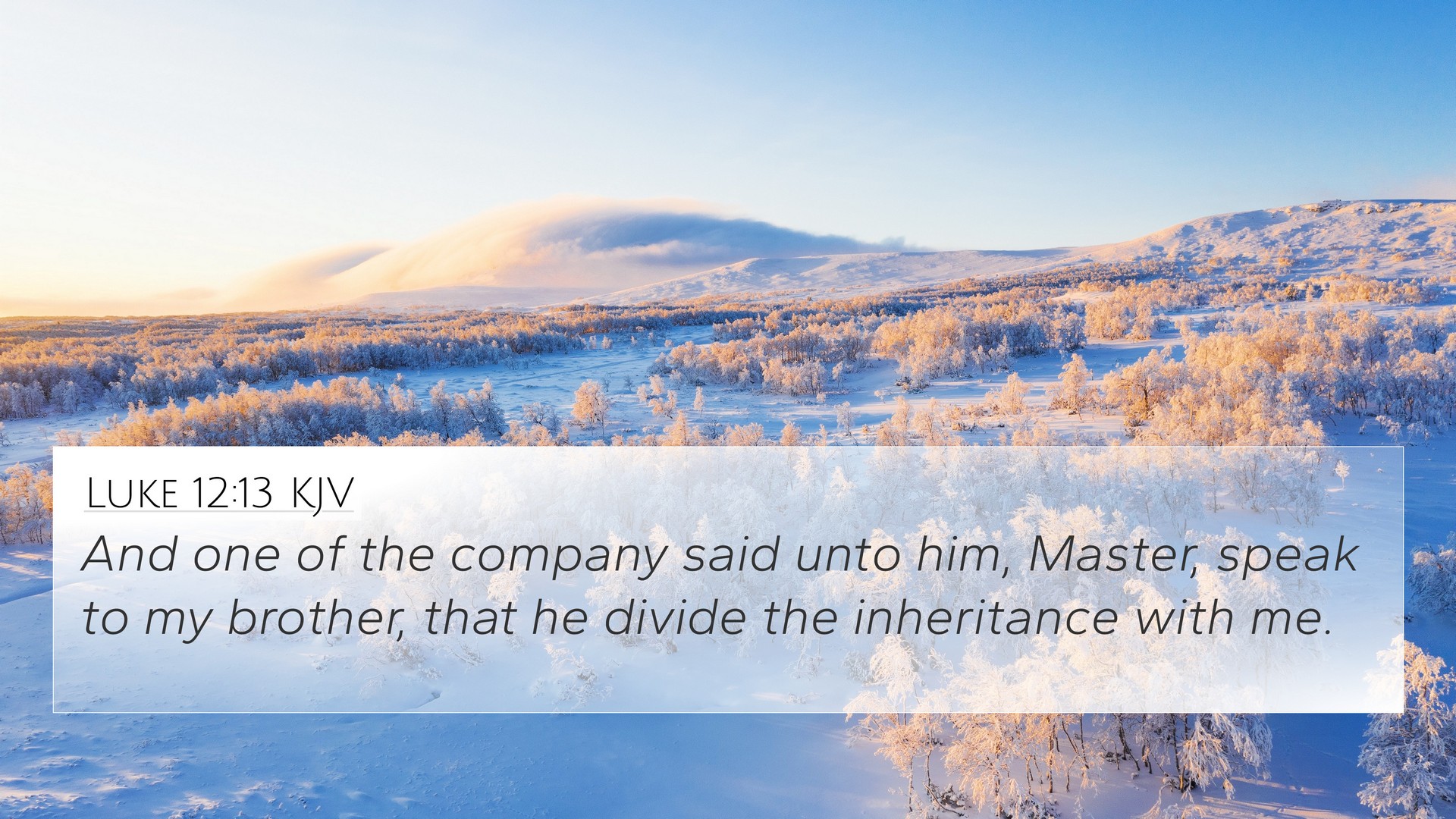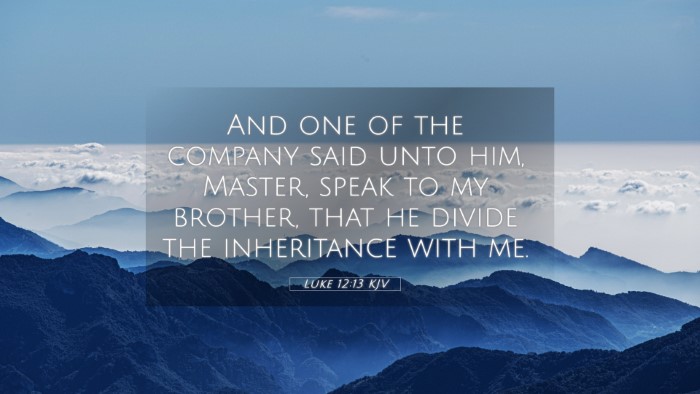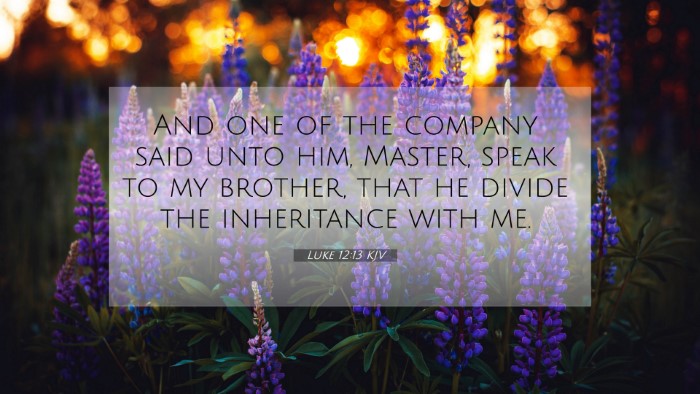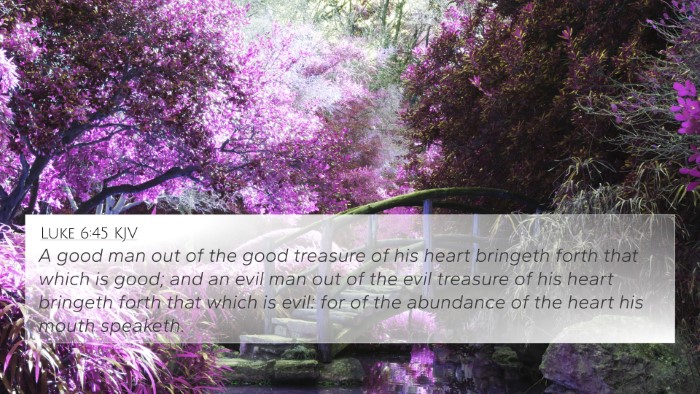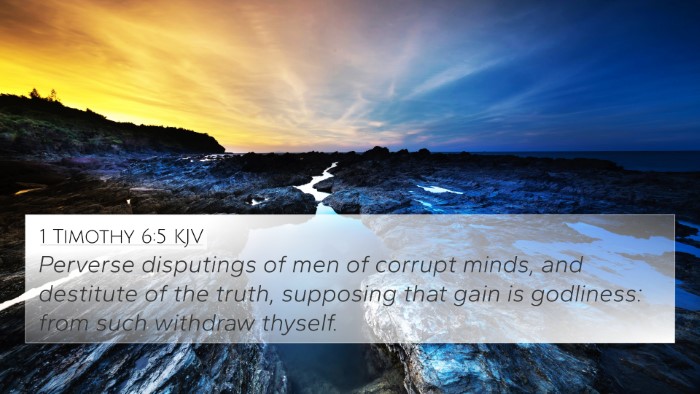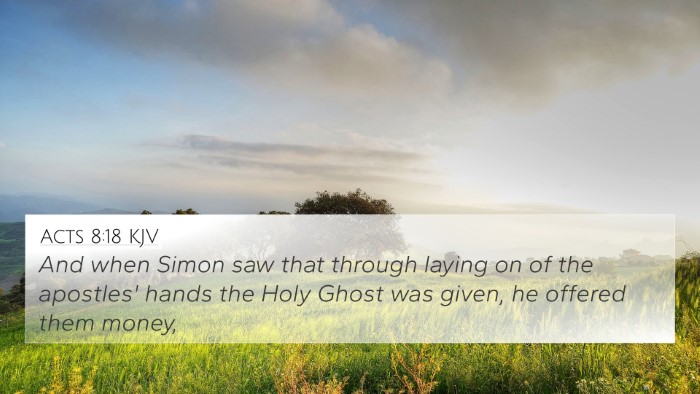Understanding Luke 12:13
Luke 12:13: "Someone in the crowd said to him, 'Teacher, tell my brother to divide the inheritance with me.'"
Overview
This verse features a man who seeks guidance from Jesus regarding an inheritance dispute with his brother. The request becomes a doorway for Jesus to impart lessons on selfishness, materialism, and the deeper values of the Kingdom of God.
Meaning and Context
According to Matthew Henry, this passage highlights the common human tendency to prioritize earthly possessions over spiritual welfare. The man's request indicates a possible greed or desire for material gain, which invites Jesus to teach about the dangers of covetousness.
Albert Barnes elaborates that the man appears to be more concerned with wealth than the spiritual qualities that Jesus embodies. Jesus responds, not to directly intervene in the man's legal matter, but to address the heart's disposition towards wealth and greed.
Adam Clarke points out that this interaction signifies how Jesus redirected attention from earthy tribunals to heavenly principles. In doing so, He emphasizes that life is not defined by one's possessions but by one's relationship with God and others.
Key Themes
- Materialism vs. Spirituality: The passage illustrates the conflict between worldly desires and spiritual enrichment.
- Covenant and Relationship: Jesus redefines the importance of relationships in light of the Kingdom of God.
- Selfishness and Greed: The request reveals a heart focused on self rather than communal love and justice.
Cross-References
Luke 12:13 connects to several other Bible verses that reflect themes of good stewardship and the perils of greed:
- Ecclesiastes 5:10: "He who loves money will not be satisfied with money, nor he who loves abundance with its income. This also is vanity."
- James 4:1-2: "What causes fights and quarrels among you? Don't they come from your desires that battle within you? You desire but do not have, so you kill. You covet but you cannot get what you want, so you quarrel and fight."
- 1 Timothy 6:10: "For the love of money is a root of all kinds of evil..."
- Luke 12:15: "And he said to them, 'Take care, and be on your guard against all covetousness, for one's life does not consist in the abundance of his possessions.'"
- Matthew 6:19-21: "Do not lay up for yourselves treasures on earth, where moth and rust destroy and where thieves break in and steal, but lay up for yourselves treasures in heaven..."
- Colossians 3:2: "Set your minds on things that are above, not on things that are on earth."
- Proverbs 28:22: "A stingy man hastens after wealth and does not know that poverty will come upon him."
- Luke 16:13: "No servant can serve two masters. For either he will hate the one and love the other, or he will be devoted to the one and despise the other..."
- Mark 8:36: "For what does it profit a man to gain the whole world and forfeit his soul?"
- Matthew 19:21: "Jesus said to him, 'If you would be perfect, go, sell what you possess and give to the poor...'
Conclusion
This verse serves as a reminder to prioritize spiritual wealth over earthly possessions and challenges us to assess our motivations regarding material desires. Jesus’ response invites us into reflection about how we interact with our resources and relationships.
Further Study
For those interested in a more comprehensive analysis, exploring tools such as a Bible concordance or a Bible cross-reference guide can illuminate deeper connections between texts. Understanding comparative Bible verse analysis will also enhance your approach to scripture study and help identify Bible verses that relate to each other.
